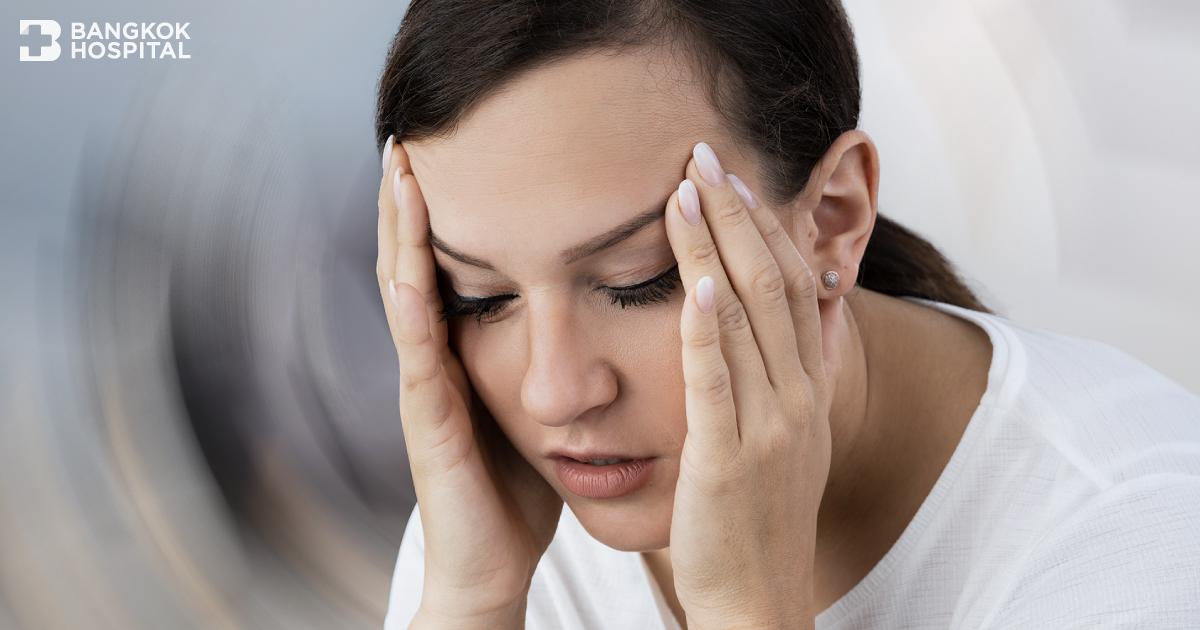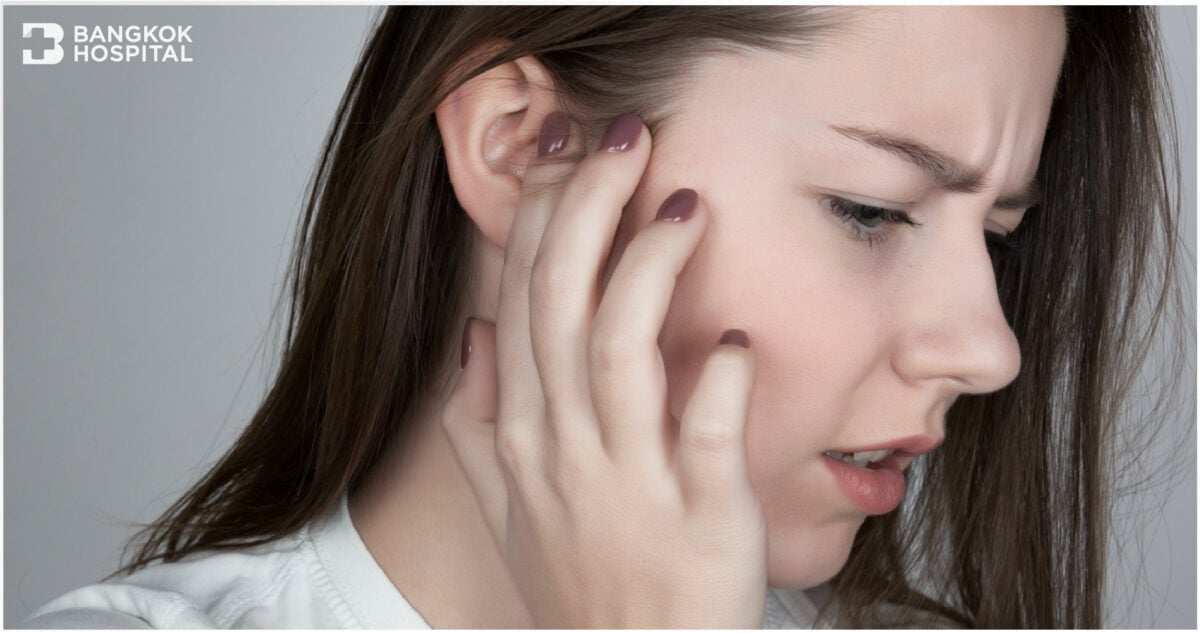If you experience dizziness or a spinning sensation, many people tend to take it lightly and think it’s not serious when the symptoms improve. However, in reality, dizziness or a spinning sensation is a warning sign from the body that can indicate various diseases. Therefore, recognizing and seeking medical attention promptly when symptoms occur is crucially important and should not be ignored.
Dizziness VS Spinning Dizziness
Dizziness (Dizziness) typically manifests as feeling lightheaded, disoriented, unsteady, insecure, woozy, or wobbly with poor balance. It may be caused by various nonspecific conditions, which is different from spinning dizziness (Vertigo) where one feels the environment or themselves spinning while stationary or feeling unsteady without any movement. This is due to abnormalities in the inner ear’s balance organs that maintain the body’s equilibrium. Severe symptoms may include nausea, vomiting, a feeling of fullness in the ear, ringing in the ears, etc. The danger of spinning dizziness is the loss of balance, increasing the risk of falls or accidents. It is important to consult a doctor promptly to find the cause and receive the correct treatment.
Spinning Dizziness Indicates Disease
Spinning dizziness can indicate several diseases affecting the body, including
- Ear disorders
- External ear e.g., earwax blockage, external ear infection, external ear tumors, broken ear canal bones, etc.
- Middle ear e.g., acute middle ear infection, chronic middle ear infection, fluid buildup in the middle ear, tumors in the nasal cavity, etc.
- Inner ear e.g., inner ear infection, meningitis, abnormal inner ear fluid pressure, dislodged calcium crystals in the inner ear, inflamed balance or hearing nerves, tumors on the balance or hearing nerves, etc.
- Brain and nervous system disorders
- Central nervous system disorders, mostly from the cerebellum
- Degeneration of the central nervous system
- Nervous system infections
- Other diseases such as
- Autoimmune diseases
- Underactive thyroid
- Anemia and others
- Vascular disease from high cholesterol, hypertension, diabetes
- Cervical spondylosis
- Kidney disease
- Allergies
- Insufficient blood supply to the brain

Diagnosing the Cause
Diagnosing the cause of spinning dizziness is very important because the faster the cause of the disease is identified, the quicker treatment can be administered, ensuring the treatment achieves its intended goals. The doctors can diagnose by
- Taking a detailed medical history and physical examination
- Hearing tests
- Brainstem evoked response audiometry
- Neurological and balance testing
- Testing the balance organs in the inner ear
- Observing eye movements and nystagmus in various positions
Additionally, the doctor may conduct further appropriate tests such as blood draws, urine tests for abnormalities, cardiac anomalies detection through CT Scan or MRI, measuring inner ear fluid pressure, and Electrocochleography – ECOG among others.
Treatment According to Symptoms
Once the cause of spinning dizziness has been diagnosed, the doctor will treat according to the symptoms and the underlying cause, including
- Prescribing medication, such as drugs that suppress the perception of the balance nerves, nervous system suppressants, anti-nausea and vomiting medications, vasodilators, etc.
- Balance training exercises, such as eye exercises, neuromuscular exercises for the neck, arms, legs, head and neck movement exercises, walking exercises, standing exercises, etc.
- Treating found diseases, e.g., controlling a chronic illness properly, preventing ear infections and upper respiratory infections if related to ear disorders, etc.
How to Behave if Experiencing Spinning Dizziness
- If you feel dizzy while walking, stop immediately, find a place to sit and rest to prevent falls or accidents.
- If you experience dizziness while driving, pull over and turn on the emergency lights immediately
- If the dizziness is severe, lie down on a flat surface without moving, focus on a stationary object until the symptoms improve before slowly getting up. If feeling sleepy, take a rest until the symptoms get better.
- Avoid factors that trigger dizziness, such as stress, anxiety, lack of sleep, various allergens, etc.
- Avoid positions that cause dizziness, such as quickly turning the head, bending over or looking up for a long time, or swiftly turning, etc.
- Avoid loud noises
- Reduce or avoid alcohol, tea, coffee, soft drinks
However, if you experience spinning dizziness, do not take it lightly under any circumstances, as it can stem from various causes, ranging from non-severe to severe, potentially endangering life. Consulting a doctor promptly will help receive appropriate and targeted treatment.









